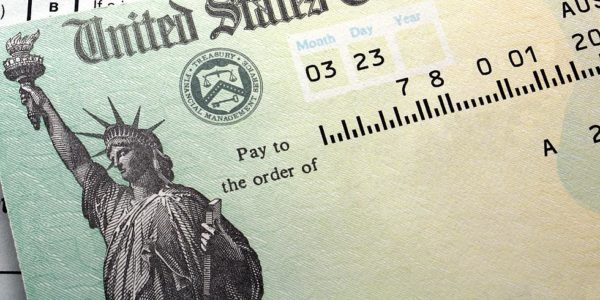
- Details
- By Native News Online Staff
WASHINGTON — When the CARES Act was signed into law, it provided refund rebates of up to $1,200 for individuals or $2,400 for married couples. Those who qualify for a stimulus payment get an extra $500 for each qualifying child under 17.
Eligible taxpayers who filed tax returns for either 2019 or 2018 will get a refund.
Payments are set to begin to be distributed automatically to most qualifying individuals this week. The payments will either be mailed or direct deposited, according to the Internal Revenue Service (IRS). Tax filers who specified a direct deposit to their bank account will have payments made to the account. Those who received check refunds will receive their checks in the mail.
There has been some confusion about the stimulus checks and the Treasury Department has worked to clarify it up.
Social Security Recipients
There has been some confusion regarding eligibility for people who receive social security, since some recipients are not required to file income tax. On Friday, the Treasury Department said Americans on Social Security will not be required to file a “simple tax return” to receive a stimulus check from the government.
This is a reversal from an earlier statement from the IRS that those receiving social security and did not file tax returns would need to file a return in order to receive the stimulus funds.
Non-Filers
Those who have not filed an income tax return, have to file a tax return to receive stimulus funds. This would apply to those who don’t file a tax return because of earnings last year below $12,000 for individuals or $24,400 for couples.
Those who fall into this category can use the new online tool, developed with the IRS-backed Free File Alliance, to answer a few basic questions to get their money. The tool is based on the Free File Fillable forms available on the IRS website.
To get to the portal, go to IRS.gov and look for “Non-Filers: Enter Payment Info Here.”
The link will take people to a page where they have to provide such information such as their Social Security number, address, and dependents. Non-filers can also provide direct deposit information, which will reduce the time it takes to receive their money.
Where’s My Payment
To those who have not received funds from the IRS by April 17, a new “Get My Payment” portal will be online and active for individuals to check on the status of their payment. The link has not been released at press time.
Beware of Scams
Often after natural disasters, scammers attempt to defraud people. The Navajo Nation Human Rights Commission has offered the following tips to avoid being scammed out of stimulus funds:
Scammers will pretend to be a government official and ask for the following:
- Social Security Number
- Bank Account Number
- Credit Card number
Government officials do not make telephone calls to individuals. All government communication is made by United States Postage mail. If you receive a call and the person is claiming to be a government official, hang up.
Or if you feel comfortable, start asking questions from the scammer to obtain the information from the caller to report them, such as their telephone number, name of employer and even their employee identification number.
To report COVID-19 scams, contact the National Center for Disaster Fraud hotline at (866) 720-5721 or email [email protected]. In addition, you can report COVID-19 scams to the Federal Bureau of Investigation at tips.fbi.gov.
More Stories Like This
Native News Weekly (August 25, 2024): D.C. BriefsNavajo Nation Mourns the Passing of Former Vice President Rex Lee Jim
Deb Haaland Earns Endorsement From Communications Workers of America Local 7076
University Soccer Standout Leads by Example
Two Native Americans Named to Democratic Congressional Campaign Committee's“Red to Blue” Program
Help us defend tribal sovereignty.
At Native News Online, our mission is rooted in telling the stories that strengthen sovereignty and uplift Indigenous voices — not just at year’s end, but every single day.
Because of your generosity last year, we were able to keep our reporters on the ground in tribal communities, at national gatherings and in the halls of Congress — covering the issues that matter most to Indian Country: sovereignty, culture, education, health and economic opportunity.
That support sustained us through a tough year in 2025. Now, as we look to the year ahead, we need your help right now to ensure warrior journalism remains strong — reporting that defends tribal sovereignty, amplifies Native truth, and holds power accountable.
 The stakes couldn't be higher. Your support keeps Native voices heard, Native stories told and Native sovereignty defended.
The stakes couldn't be higher. Your support keeps Native voices heard, Native stories told and Native sovereignty defended.
Stand with Warrior Journalism today.
Levi Rickert (Potawatomi), Editor & Publisher

